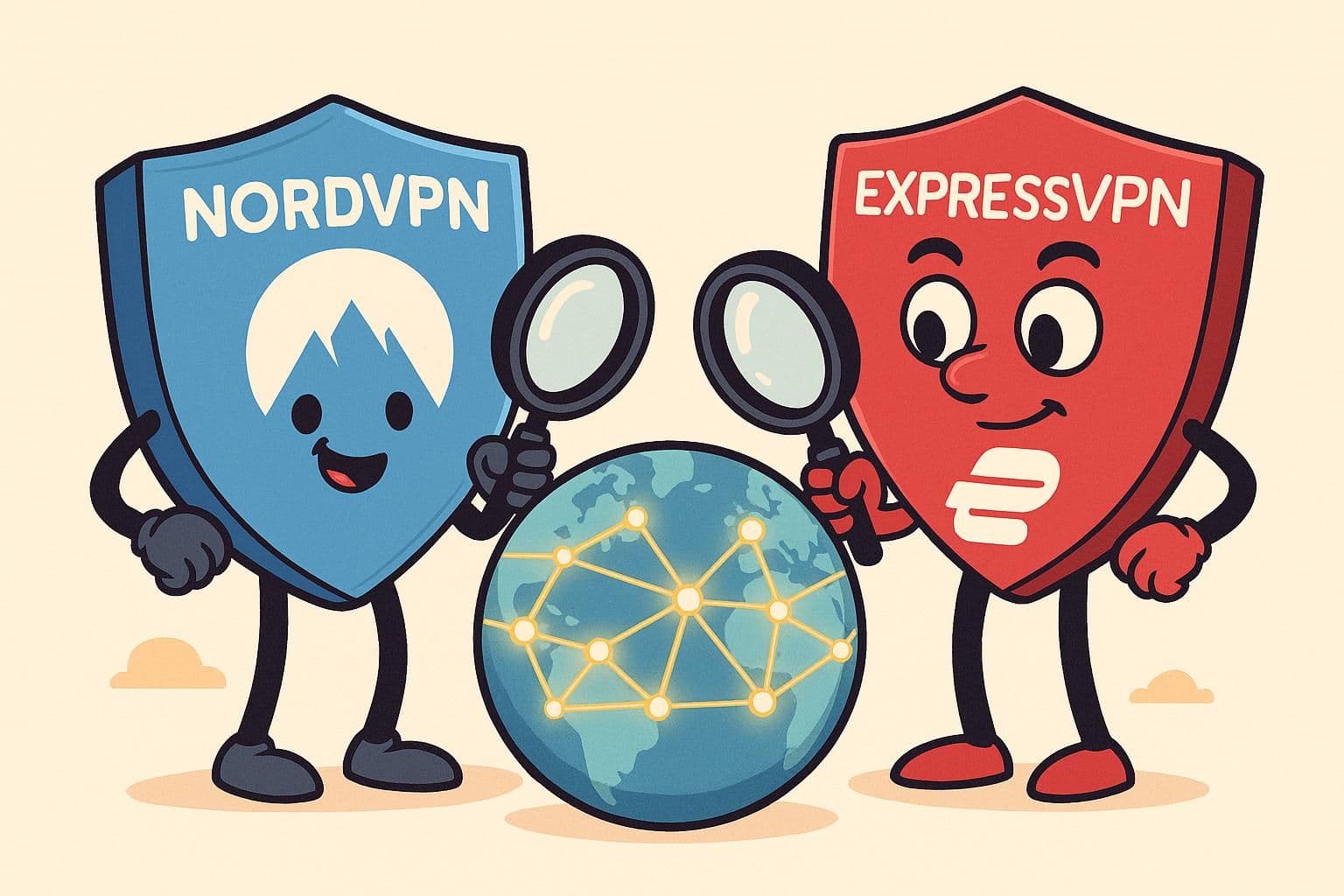ChatGPT-4.5 vs Google Gemini: Which AI Model Performs Better?
Explore the strengths and weaknesses of two leading AI models, tailored for different tasks and integration needs in business automation.

ChatGPT-4.5 and Google Gemini are two leading AI models, each tailored for different needs. Here’s a quick breakdown:
- ChatGPT-4.5: Best for text-based tasks, creative writing, and technical customization. Works well with Microsoft’s ecosystem and supports advanced features like function calling and structured outputs.
- Google Gemini: Focuses on multimodal data (text, images, video, audio), offering high accuracy. Seamlessly integrates with Google Workspace, making it ideal for real-time data processing and enterprise workflows.
- Connect both Gemini and ChatGPT models with your favorite tools on Latenode! Automate tasks like content creation, data entry, or reporting using AI. Latenode offers pre-built templates integrating ChatGPT and Gemini to kickstart your workflows. Browse AI Templates!
Quick Comparison
| Feature | ChatGPT-4.5 | Google Gemini |
|---|---|---|
| Primary Strength | Text-based tasks & research | Multimodal data processing |
| Accuracy Rate | 80-85% | High (Reportedly 90% in specific benchmarks) |
| Integration | Microsoft ecosystem, APIs | Google Workspace |
| Context Window | 128,000 tokens | 1 million tokens |
| Response Speed | Slower during peak times | 15% faster than competitors |
| Cost (API Input) | $75/million tokens | $0.075/million tokens (Flash) |
Key Takeaway
Choose ChatGPT-4.5 for advanced text tasks and flexibility, or Google Gemini for real-time, multimodal data processing and Google Workspace compatibility. Both are powerful tools but cater to different automation needs.
ChatGPT vs Google Gemini (2024) - What Are the Main Differences?
Core Features
Text Understanding and Generation
ChatGPT-4.5 has reduced hallucinations by less than 20% and is capable of maintaining context even in complex workflows. On the other hand, Google Gemini aims for impressive accuracy, leveraging real-time data for its outputs across various tasks..
"The first model that feels like talking to a thoughtful person to me. I have had several moments where I've sat back in my chair and been astonished at getting actually good advice from an AI." – Sam Altman, OpenAI co-founder and CEO [5]
What sets these models apart isn’t just the quality of their text generation but also how they handle various types of inputs.
By the way, with AI automation on Latenode, you can generate any text with AI and have it published whenever you want — social media, blog, Notion or Google Docs, you name it! Get Started with an AI-powered template that’s searching the web and generating an article for less than $0.05/execution:
Input Type Support
ChatGPT-4.5 shines in text-based tasks and now supports features like:
- Image generation
- Function calling
- Handling structured outputs [6]
Meanwhile, Google Gemini processes multiple input types simultaneously, including text, images, video, and audio [2]. For example, Gemini can analyze product images and suggest clothing combinations - a feature particularly helpful in fashion retail [2].
Connection Options
Integration capabilities are a key differentiator between the two platforms.
| Integration Feature | ChatGPT-4.5 | Google Gemini |
|---|---|---|
| API Access | Broad API suite, including Chat Completions, Assistants, and Batch APIs | Built-in integration with Google Workspace |
| Data Processing | Supports structured outputs, vision tasks, and streaming | Real-time data handling with multilingual support |
| System Integration | Offers function calling, prompt caching, and evaluation tools [7] | Deep integration with the Google ecosystem |
| Performance Metrics | 15–20% error rate with creative flexibility | High accuracy and faster responses" |
For workflow automation, ChatGPT-4.5’s extensive API and function-calling features make it ideal for custom setups, especially when paired with platforms like Latenode. In contrast, Gemini’s seamless integration with Google Workspace makes it a natural fit for workflows centered around Google tools.
ChatGPT-4.5 operates on a vast number of parameters, offering extensive customization for technical users focused on language tasks. Meanwhile, Gemini’s real-time, multimodal capabilities cater to diverse data analysis needs, particularly in Google-based environments.
Explore how Latenode simplifies complex integrations with its low-code automation builder. Connect ChatGPT, Gemini, and 300+ integrations, no code required. Also, leverage JavaScript for custom logic. Discover Latenode Integrations!
Speed and Accuracy Tests
Output Quality
Both models perform well in enterprise tasks, but they shine in different areas. According to Box, GPT-4.5 improved enterprise document Q&A accuracy by 4 percentage points [9]. In specific tests, GPT-4.5 delivered:
- 62.5% accuracy on SimpleQA (compared to GPT-4's 38.2%)
- 78% accuracy on PersonQA [10]
"Particularly potent for enterprise use-cases, where accuracy and integrity are mission critical… our testing shows that GPT-4.5 is one of the best models available both in terms of our eval scores and also its ability to handle many of the hardest AI questions that we have come across." – Box [9]
Google Gemini, on the other hand, aims for a consistently high accuracy rate across tasks. Its ability to leverage extensive data resources ensures dependable performance, especially for time-sensitive business needs.
Response Time
Response speed is vital for real-time applications. Gemini 2.0 Flash has doubled the speed of its earlier version while maintaining accuracy [8]. This improvement allows for interactions that feel more natural, making it ideal for customer service and real-time analytics.
| Performance Metric | Google Gemini | ChatGPT-4.5 |
|---|---|---|
| Response Speed | Faster than most competitors | Variable during peak times |
| Real-time Processing | Built-in capability | Limited access |
| Concurrent Processing | Smoothly handles multiple tasks | May slow under heavy load |
| Context Window | 1 million tokens | 128,000 tokens |
System Requirements
System requirements play a big role in deployment and performance. Google Gemini uses TPUv5 chips with 16,384 running in parallel, ensuring efficient processing and consistent accuracy [2]. ChatGPT-4.5 excels in advanced language tasks but demands significant computing resources. This can impact response times during peak usage periods.
Key factors for deployment include:
- Processing Power: Gemini relies on specialized TPU hardware, while ChatGPT-4.5 works across various cloud environments.
- Context Handling: ChatGPT-4.5 offers a context window of up to 128,000 tokens (about 300 pages) [2].
- Output Limitations: ChatGPT-4.5 caps individual responses at 4,096 tokens [2].
"Everything is a little bit better and it's awesome, but also not exactly in ways that are trivial to point to." – Andrej Karpathy, Former OpenAI Researcher [10]
sbb-itb-23997f1
Business Uses
Task Automation
ChatGPT-4.5 is great for automating text-heavy tasks. Think report writing, managing customer responses, drafting emails, or summarizing meetings. On the other hand, Gemini is built to handle both structured and unstructured data. It automates tasks like data entry, creating financial models, and even directly working with spreadsheets[11].
Working with Latenode
![]() Latenode's platform uniquely bridges ChatGPT and Gemini with your tools. Use the visual builder for fast setup, or leverage JavaScript/NPM for complex logic. Integrate AI via dedicated nodes, connect APIs, or use browser automation—all with a cost-effective pay-per-execution model ideal for scalable AI workflows.
Latenode's platform uniquely bridges ChatGPT and Gemini with your tools. Use the visual builder for fast setup, or leverage JavaScript/NPM for complex logic. Integrate AI via dedicated nodes, connect APIs, or use browser automation—all with a cost-effective pay-per-execution model ideal for scalable AI workflows.
Ready to harness the power of AI automation? Build sophisticated workflows integrating ChatGPT, Gemini, and your favorite apps on Latenode’s flexible platform. Start your Free Latenode Trial!
Data Analysis Examples
Google Gemini's has redefined real-time analytics for businesses[14]. For instance, in an e-commerce fraud detection case, transaction data is streamed via Pub/Sub into BigQuery. Vertex AI then analyzes these transactions live, flagging suspicious ones on Looker dashboards[14].
Gemini also streamlines data analysis with tools for cleaning data, creating interactive visualizations, forecasting in real time, and spotting anomalies[13]. Here’s an example of cost comparison: Gemini 1.5 Flash API input starts at $0.075 per million tokens, Gemini 2 models are free of charge, while GPT-4.5 costs $75 for the same input size.
"Gemini is the most capable model they've ever built." – Demis Hassabis, CEO and Co-Founder of Google DeepMind[13]
ChatGPT-4.5, however, focuses on precision and reducing errors in data analysis[12]. While it doesn’t have Gemini’s multimodal capabilities, it shines in delivering accurate, language-driven insights. This makes it particularly useful for qualitative research and creating detailed reports[2].
Setup and Access
Basic User Guide
You can access ChatGPT-4.5 through OpenAI's web interface for quick interactions. Business users can collaborate using Teams workspaces, or integrate custom APIs may require some technical know-how.
Google Gemini works seamlessly with Google Workspace tools like Gmail, Google Sheets, and Google Drive. If you're familiar with these apps, you can easily use Gemini's AI assistant features [4]. Setting everything up correctly is key to using these tools effectively in automated workflows.
Once you're set up, it's important to review the costs to make sure the tools fit your budget.
Connect Gemini and any AI model with any service on Latenode! For example, check out our email summarizer — no mode manual scrolling of your inbox, have AI read all incoming emails and then generate a unified brief. Try it out with a ready-made template:
Cost Breakdown
After gaining access, understanding the pricing options is essential for managing expenses.
| Feature | ChatGPT-4.5 | Google Gemini |
|---|---|---|
| Basic Access | Free tier with GPT-4o mini | Free access with all Gemini models |
| Professional | $20/month (Plus) | Free |
| Team Features | $25/user/month (annual) | Free |
| API Usage (Input) | $75 per million tokens | Gemini 1.5 Pro: $1.25 per million tokens,or Gemini 1.5 Flash starting at $0.075 per million tokensGemini 2.0 models: Free of Charge |
| API Usage (Output) | $150 per million tokens | Gemini 1.5 Pro: $5.00 per million tokens,or Gemini 1.5 Flash at $0.30 per million tokensGemini 2.0 Models: Free of Charge |
The Enterprise plan offers higher usage limits, improved privacy, and dedicated support [15]. For businesses with heavy API needs, Google Gemini's Gemini 1.5 Flash option starts as low as $0.075 per million input tokens [17].
Safety and Rules
Data security is a top priority for business users. ChatGPT-4.5's Enterprise plan includes advanced privacy features and dedicated support [15].
Google Gemini relies on Google Cloud's security protocols, which align with organizational policies [16].
"AI coding tools are becoming essential for developers and should be accessible to everyone, regardless of their financial resources."
– Ryan J. Salva, Senior Director of Product Management, Google Cloud [18]
For developers, the free version of Gemini Code Assist is a standout, offering up to 180,000 code completions per month [18]. This makes it a great choice for teams working on automation projects.
Facing challenges with AI integration or automation scaling? Join the Latenode community forum to discuss solutions, share workflows, and get expert advice. Visit the Latenode Forum!
Conclusion
Key Differences
When comparing ChatGPT-4.5 and Google Gemini, each model shines in areas that matter for business automation. ChatGPT-4.5 stands out for its strengths in creative tasks and ethical reasoning, while Gemini is recognized for its technical accuracy and ability to deliver precise data insights [1].
One notable technical difference is their token capacity. ChatGPT-4.5 operates with a 128,000-token context window, while Gemini supports up to 1 million tokens. This difference impacts how they handle large-scale data in business workflows [19]. However, both tools integrate seamlessly with any of your tools through Latenode’s low-code builder.
Choosing the Right Model
Your choice should align with your specific needs:
Opt for ChatGPT-4.5 if you need:
- Advanced text-based automation that works well with Microsoft's ecosystem [2].
- Extensive third-party integrations and custom API capabilities.
- High-quality creative content generation and ethical decision-making [1].
Go with Google Gemini if you require:
- Real-time data processing with high accuracy rates.
- Seamless integration with Google Workspace tools.
- Precise data analysis and information extraction [1].
"We have basically come to a point where most LLMs are indistinguishable on qualitative metrics." – Subbarao Kambhampati, AI professor at Arizona State University [3]
These distinctions highlight how each model serves different automation needs.
The Future of AI Automation
AI automation is advancing at a fast pace, and both ChatGPT-4.5 and Google Gemini are contributing to this growth. ChatGPT-4.5 is making strides in areas like agentic planning and multi-step coding workflows, with improvements in factual accuracy and reduced hallucination rates [20].
Meanwhile, Google Gemini is pushing boundaries with faster processing - delivering responses about 15% faster than competitors - and leveraging its large context window for handling complex, data-heavy tasks [4]. Deciding between the two will depend on your current technical setup and how their evolving features align with your business goals.
Related posts



